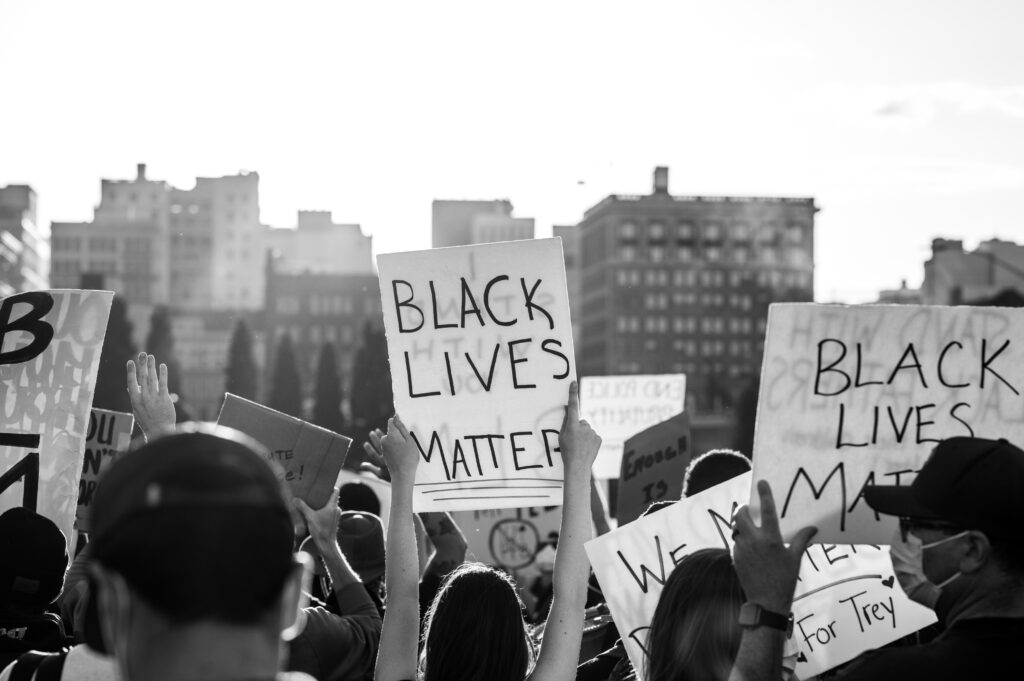
The Oregon Mediation Association Board of Directors shared and still shares in the collective horror and grief felt by our communities in response to the murders of George Floyd, Breonna Taylor, Ahmaud Arbery, and too many others nationwide and here in Oregon at the hands of police and systemic racism.
Many people of color that were killed in the confrontations with police here in Oregon include the following: Kendra James, Terrell Johnson, Keaton Otis, Andre Gladen, Patrick Kimmons, Quanice Hayes, Jason Washington, James Perez, Byron Hammick, Aaron Campbell, Koben Henrickson, John Elifritz, Christopher Kalonji, and William Patrick Floyd.
Many of us decided it was long overdue for us to reflect on our own biases and privilege and come to terms with how they may impact our capacity to act impartially when mediating. It is a time for us to look at our organization and ask how we can show up to work against systemic racism. How are we helping or hurting the BIPOC communities in our personal and professional lives? How can we improve our relationships and services to better meet the needs of ALL people while promoting anti-racist dialogues?
In response we issued the statement set forth below:
As OMA members, we have an obligation to act impartially when we are mediating and educating/advocating for mediation. That does NOT mean we are “neutral” on issues about racism, injustice and other pervasive social issues. Mediators and other conflict resolution practitioners in our community must promote anti-racism ourselves and avoid “race-neutral” perspectives that allow BIPOC (Black, Indigenous and people of color) individuals to be disenfranchised and disempowered. As mediators we are working on our own bias, and learning to meet people where they are in this process, in our personal and professional lives. Please see OMA Core Standards of Mediation Practice, Section III.[1]
During the Fall conference held in November, we included sessions to provide a place for implicit bias, equity, and anti-racism to be discussed. We strived to lift voices of individuals who do some of the most important work with our communities and demonstrate best practices to support BIPOC individuals in their lives.
OMA is striving for anti-racism in our contacts, and are providing resources for our mediators to do so as well. The links to some of our programs from the conference dealing with these issues are here (only available to members). While part of the reason for doing this is to help mediators become more equity-informed so that they will be better able to mediate, the same info is also useful for every one that wants to attempt to understand, as many of us will never truly know, the racial injustices that have long endured. Even in a time when many laws and structures in society are not discriminatory on their face, rather it is in the manner in which they have been selectively enforced.
We would like to remind non-Black folks that educating yourself and your surrounding friends, family and peers is necessary. As many exhausted BIPOC leaders have said, please take the labor off of Black and BIPOC communities and have those difficult conversations with yourself and with others about what it means to be anti-racist and why it is important. With rampant conflict in our lives and across our society, please consider helping educate others on your journey to avoid asking Black folks to educate and inform. It begins with a quick google search: “anti-racism resources.”
Here is a link to Anti-Racism Resources and here is a link to ADR Hub’s Statement for Conflict Engagement Specialists.
We welcome our members to reach out and contact us if you have found other resources helpful. If you are on a parallel journey, or even considering starting one, please read any of them or email us to suggest one for us to add to that list.
Most sincerely,
The OMA Board of Directors
[1] Core Standards of Mediation Practice, Or. Mediation Ass’n (Apr. 23, 2005), https://ormediation.org/wp-content/uploads/2016/04/CoreStandardsFina_2005.pdf.